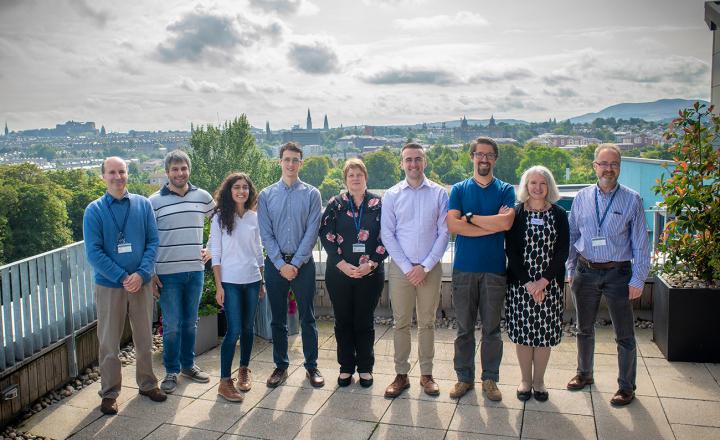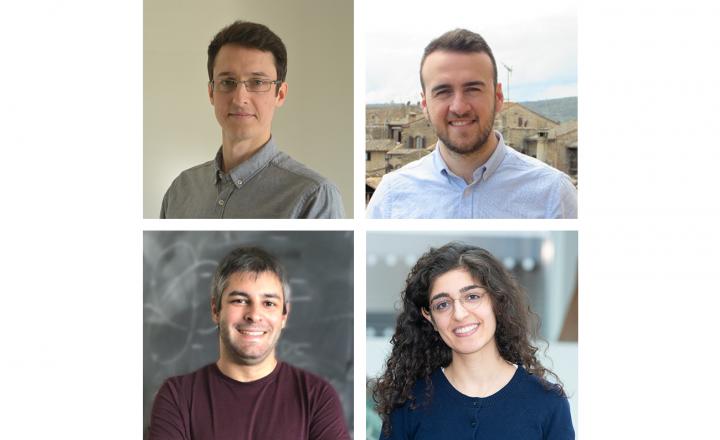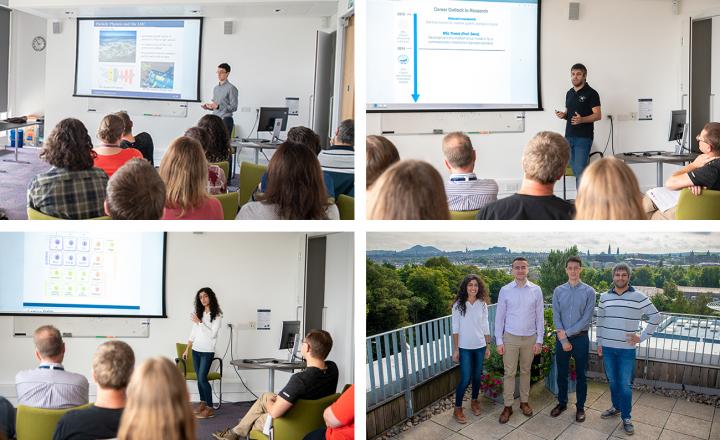New Cross-Disciplinary Fellows to use big data in fight against disease
The beginning of the 21st century has seen enormous advances in science and technology that have exponentially increased our ability to gather data about the world around us, but science has yet to take full advantage of this mountain of data: August 2018

Big data sets - including those from our human genome and electronic health records - have the potential to transform our understanding of the body in health and disease, which could lead to the development of new drugs, treatments and disease prevention strategies.
But the data alone don’t tell us anything. We need people with the right skills to be able to interpret it in order to generate new information and knowledge.
There are very few interdisciplinary scientists because science training occurs in silos. Physicists do physics in a Physics Department, biologists pursue biological questions in their own department, and so on. Yet the science that will have the greatest future impact on society will require multiple disciplines, and for scientists from different backgrounds to understand and work together.
We are breaking down barriers between disciplines by recruiting talented scientists from outside biology and medicine into the life sciences. Our Cross-Disciplinary Post-Doctoral Fellowship programme is attracting the brightest minds from physics, maths and information sciences. We recognise that such individuals working across supercomputing, artificial intelligence, genetic manipulation, and human biology and disease will be our future leaders in scientific discovery, tackling the most challenging questions in medicine.
Our pioneering new Cross-Disciplinary Post-Doctoral Fellowship (XDF) programme is a £2m initiative, funded jointly by the Medical Research Council and the University of Edinburgh. It partners the MRC Institute of Genetics and Molecular Medicine with the School of Informatics to train genuinely cross-disciplinary researchers.
The programme is attracting the brightest minds from physics, maths and information sciences to tackle health topics, with the first four Cross-Disciplinary Fellows starting the four-year programme in August 2018.

The XDF programme is unique in providing a well-structured training year, during which I can make the transition from physics to biomedicine and define the direction I want my future research to take. The way in which the programme is structured to ensure a cross-pollination of ideas between the IGMM and Informatics makes this a truly interdisciplinary position and one which I am hugely excited about working in.
I hope to gain biological knowledge and medical-application experience that, combined with my analytical and technical background, will enable me to become an expert in data-driven approaches to biomedical problems. Above all, my ambitions are that my research has direct and positive knock-on effects not only on the fundamental research performed at the IGMM, but importantly to also lead to more effective treatments for patients.
The IGMM is one of the biggest biomedical research establishments in the UK with high quality data and important biological questions. The diversity of IGMM, where experimental, clinical, and computational research groups are placed in the same building, creates a collaborative and supportive atmosphere, which I believe to be really important for my development as an XDF Post-Doc Fellow.
The XDF programme and partnership between the IGMM and the School of Informatics is extremely beneficial. It will allow me to establish collaborations with pioneers in both fields and work directly on pressing biological problems while at the same time developing computational models that can advance the field.
Being an XDF Fellow will provide me with a dynamic and challenging environment from which I can build a successful academic career.
The IGMM is an institute where biologists consider it necessary and important to work alongside physicists, mathematicians and computer scientists. This programme is a unique opportunity for a mathematically-minded scientist to direct his research on biomedical problems and people’s health.
My ambition is to become a complete interdisciplinary and independent scientist. I want to be able to combine theoretical, computational and experimental expertise to develop original projects directed to biomedical research.
The XDF programme provides opportunities to train in biology via lectures and rotation projects, very important given that I come from a different background – I have a PhD in Theoretical Particle Physics. The programme will allow me to learn how to apply quantitative skills from physics and mathematics to biology.
I particularly hope to train in cancer biology and learn how to apply mathematical and computation skills to real biological data.

Now could not be a better time for the Cross-Disciplinary Fellowship programme to be launched. The recent City Deal announcement, bringing £1.3bn to cement Edinburgh and South East Scotland as the data capital of Europe, highlights the excitement surrounding the promise of so-called Big Data to help transform our lives. By bringing scientists of all disciplines together, we can realise this potential and help people in Scotland live healthier lives.

